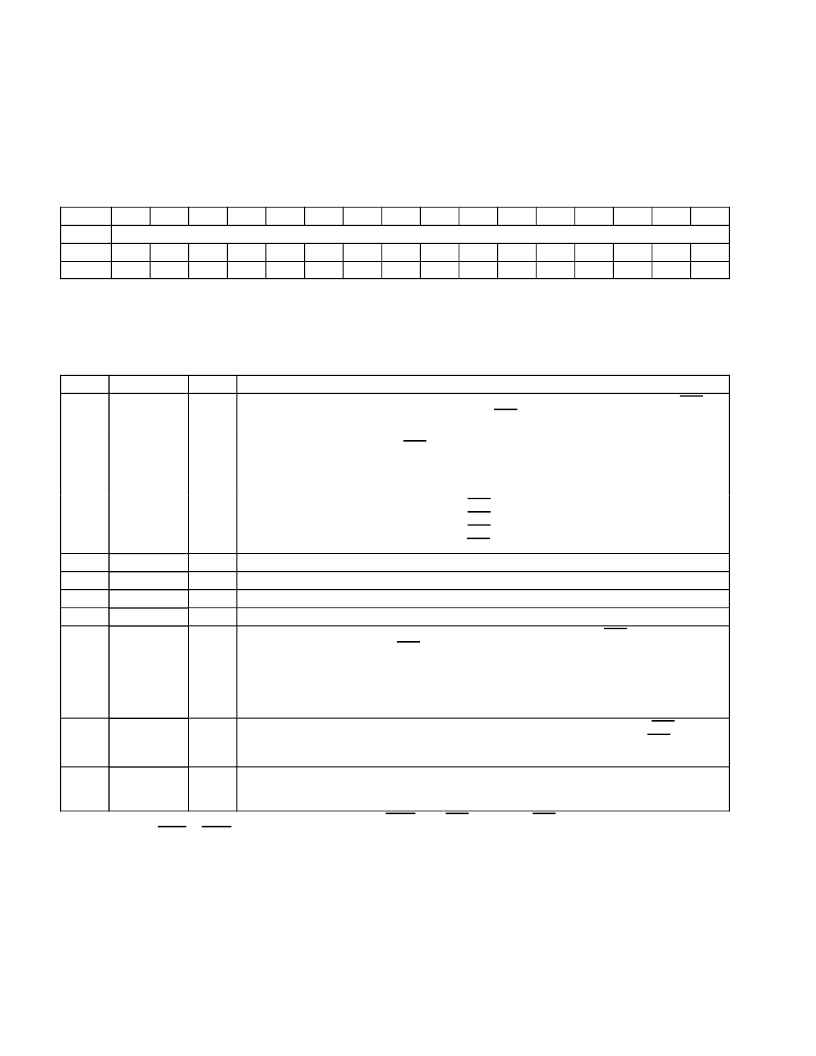- 您現(xiàn)在的位置:買賣IC網(wǎng) > PDF目錄369950 > PCI1620GHK Controller Miscellaneous - Datasheet Reference PDF資料下載
參數(shù)資料
| 型號(hào): | PCI1620GHK |
| 英文描述: | Controller Miscellaneous - Datasheet Reference |
| 中文描述: | 控制器雜項(xiàng)-數(shù)據(jù)表參考 |
| 文件頁(yè)數(shù): | 100/164頁(yè) |
| 文件大小: | 720K |
| 代理商: | PCI1620GHK |
第1頁(yè)第2頁(yè)第3頁(yè)第4頁(yè)第5頁(yè)第6頁(yè)第7頁(yè)第8頁(yè)第9頁(yè)第10頁(yè)第11頁(yè)第12頁(yè)第13頁(yè)第14頁(yè)第15頁(yè)第16頁(yè)第17頁(yè)第18頁(yè)第19頁(yè)第20頁(yè)第21頁(yè)第22頁(yè)第23頁(yè)第24頁(yè)第25頁(yè)第26頁(yè)第27頁(yè)第28頁(yè)第29頁(yè)第30頁(yè)第31頁(yè)第32頁(yè)第33頁(yè)第34頁(yè)第35頁(yè)第36頁(yè)第37頁(yè)第38頁(yè)第39頁(yè)第40頁(yè)第41頁(yè)第42頁(yè)第43頁(yè)第44頁(yè)第45頁(yè)第46頁(yè)第47頁(yè)第48頁(yè)第49頁(yè)第50頁(yè)第51頁(yè)第52頁(yè)第53頁(yè)第54頁(yè)第55頁(yè)第56頁(yè)第57頁(yè)第58頁(yè)第59頁(yè)第60頁(yè)第61頁(yè)第62頁(yè)第63頁(yè)第64頁(yè)第65頁(yè)第66頁(yè)第67頁(yè)第68頁(yè)第69頁(yè)第70頁(yè)第71頁(yè)第72頁(yè)第73頁(yè)第74頁(yè)第75頁(yè)第76頁(yè)第77頁(yè)第78頁(yè)第79頁(yè)第80頁(yè)第81頁(yè)第82頁(yè)第83頁(yè)第84頁(yè)第85頁(yè)第86頁(yè)第87頁(yè)第88頁(yè)第89頁(yè)第90頁(yè)第91頁(yè)第92頁(yè)第93頁(yè)第94頁(yè)第95頁(yè)第96頁(yè)第97頁(yè)第98頁(yè)第99頁(yè)當(dāng)前第100頁(yè)第101頁(yè)第102頁(yè)第103頁(yè)第104頁(yè)第105頁(yè)第106頁(yè)第107頁(yè)第108頁(yè)第109頁(yè)第110頁(yè)第111頁(yè)第112頁(yè)第113頁(yè)第114頁(yè)第115頁(yè)第116頁(yè)第117頁(yè)第118頁(yè)第119頁(yè)第120頁(yè)第121頁(yè)第122頁(yè)第123頁(yè)第124頁(yè)第125頁(yè)第126頁(yè)第127頁(yè)第128頁(yè)第129頁(yè)第130頁(yè)第131頁(yè)第132頁(yè)第133頁(yè)第134頁(yè)第135頁(yè)第136頁(yè)第137頁(yè)第138頁(yè)第139頁(yè)第140頁(yè)第141頁(yè)第142頁(yè)第143頁(yè)第144頁(yè)第145頁(yè)第146頁(yè)第147頁(yè)第148頁(yè)第149頁(yè)第150頁(yè)第151頁(yè)第152頁(yè)第153頁(yè)第154頁(yè)第155頁(yè)第156頁(yè)第157頁(yè)第158頁(yè)第159頁(yè)第160頁(yè)第161頁(yè)第162頁(yè)第163頁(yè)第164頁(yè)

4
–
32
4.45 Power Management Capabilities Register
The power management capabilities register contains information on the capabilities of the PC Card function related
to power management. Both PCI1620 CardBus bridge functions support D0, D1, D2, and D3 power states. Default
register value is FE12h for operation in accordance with
PCI Bus Power Management Interface Specification
revision
1.1. See Table 4
–
18 for a complete description of the register contents.
Bit
15
14
13
12
11
10
9
8
7
6
5
4
3
2
1
0
Name
Power management capabilities
Type
RW
R
R
R
R
R
R
R
R
R
R
R
R
R
R
R
Default
1
1
1
1
1
1
1
0
0
0
0
1
0
0
1
0
Register:
Offset:
Type:
Default:
Power management capabilities
A2h (Functions 0, 1)
Read-only, Read/Write
FE12h
Table 4
–
18. Power Management Capabilities Register Description
BIT
SIGNAL
TYPE
FUNCTION
This 5-bit field indicates the power states from which the PCI1620 device functions can assert PME. A 0
for any bit indicates that the function cannot assert the PME signal while in that power state. These 5 bits
return 11111b when read. Each of these bits is described below:
15
PME support
RW
Bit 15
–
defaults to a 1 indicating the PME signal can be asserted from the D3cold state. This bit is read/write
because wake-up support from D3cold is contingent on the system providing an auxiliary power source
to the VCC terminals. If the system designer chooses not to provide an auxiliary power source to the VCC
terminals for D3cold wake-up support, then BIOS should write a 0 to this bit.
Bit 14
–
contains the value 1 to indicate that the PME signal can be asserted from the D3hot state.
Bit 13
–
contains the value 1 to indicate that the PME signal can be asserted from the D2 state.
Bit 12
–
contains the value 1 to indicate that the PME signal can be asserted from the D1 state.
Bit 11
–
contains the value 1 to indicate that the PME signal can be asserted from the D0 state.
This bit returns a 1 when read, indicating that the function supports the D2 device power state.
14
–
11
R
10
D2_Support
R
9
D1_Support
R
This bit returns a 1 when read, indicating that the function supports the D1 device power state.
8
–
6
RSVD
R
Reserved. These bits return 000b when read.
5
DSI
R
Device-specific initialization. This bit returns 0 when read.
4
AUX_PWR
R
Auxiliary power source. This bit is meaningful only if bit 15 (D3cold supporting PME) is set. When this bit
is set, it indicates that support for PME in D3cold requires auxiliary power supplied by the system by way
of a proprietary delivery vehicle.
A 0 (zero) in this bit field indicates that the function supplies its own auxiliary power source.
If the function does not support PME while in the D3cold state (bit 15=0), then this field must always return
0.
3
PMECLK
R
When this bit is 1, it indicates that the function relies on the presence of the PCI clock for PME operation.
When this bit is 0, it indicates that no PCI clock is required for the function to generate PME.
Functions that do not support PME generation in any state must return 0 for this field.
2
–
0
Version
R
These 3 bits return 010b when read, indicating that there are 4 bytes of general-purpose power
management (PM) registers as described in draft revision 1.1 of the
PCI Bus Power Management Interface
Specification
.
This is a PME context bit and can be cleared only by the assertion of GRST when PME is enabled. If PME is not enabled, then this bit is cleared
by the assertion of PRST or GRST.
相關(guān)PDF資料 |
PDF描述 |
|---|---|
| PCI1620PDV | Controller Miscellaneous - Datasheet Reference |
| PCI2050A | 32-Bit. 66MHz. 9-Master PCI-to-PCI Bridge |
| PCI2050GHK | BUS CONTROLLER |
| PCI2050PDV | BUS CONTROLLER |
| PCI9054AB50BI | Interface IC |
相關(guān)代理商/技術(shù)參數(shù) |
參數(shù)描述 |
|---|---|
| PCI1620PDV | 功能描述:外圍驅(qū)動(dòng)器與原件 - PCI PC Card Flash & Smart Card Cntrlr RoHS:否 制造商:PLX Technology 工作電源電壓: 最大工作溫度: 安裝風(fēng)格:SMD/SMT 封裝 / 箱體:FCBGA-1156 封裝:Tray |
| PCI-1620U | 制造商:ADVANTECH 制造商全稱:Advantech Co., Ltd. 功能描述:8-port RS-232 PCI Communication Card, with Surge Protection |
| PCI1620ZHK | 功能描述:外圍驅(qū)動(dòng)器與原件 - PCI PC Card Flash & Smart Card Cntrlr RoHS:否 制造商:PLX Technology 工作電源電壓: 最大工作溫度: 安裝風(fēng)格:SMD/SMT 封裝 / 箱體:FCBGA-1156 封裝:Tray |
| PCI-1622A-BE | 制造商:Advantech Co Ltd 功能描述:8PORT RS-422/485 PCI COM CARD - Trays 制造商:Advantech Co Ltd 功能描述:8-port RS-422/485 UPCI COMM card |
| PCI-1622CU | 制造商:ADVANTECH 制造商全稱:Advantech Co., Ltd. 功能描述:8-port RS-422/485 Universal PCI Communication Card with Isolation & EFT Protection |
發(fā)布緊急采購(gòu),3分鐘左右您將得到回復(fù)。